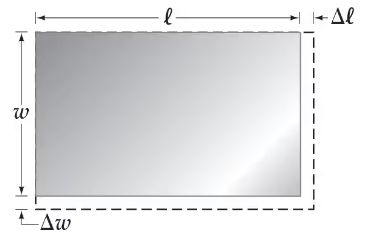 Back
Back Giancoli Douglas 5th edition
Giancoli Douglas 5th edition Ch. 17 - Temperature, Thermal Expansion, and the Ideal Gas Law
Ch. 17 - Temperature, Thermal Expansion, and the Ideal Gas LawProblem 3a
(I) (a) “Room temperature” is often taken to be 68°F. What is this on the Celsius scale?
Problem 5
A thermometer tells you that you have a fever of 38.5°C. What is this in Fahrenheit?
Problem 7b
In an alcohol-in-glass thermometer, the alcohol column has length 12.61 cm at 0.0°C and length 22.79 cm at 100.0°C. What is the temperature if the column has length 14.40 cm?
Problem 9
The Eiffel Tower (Fig. 17–20) is built of wrought iron approximately 300 m tall. Estimate how much its height changes between January (average temperature of 2°C) and July (average temperature of 25°C). Ignore the angles of the iron beams and treat the tower as a vertical beam.
<IMAGE>
Problem 11a
The density of water at 4°C is 1.00 x 10³ kg / m³. What is water’s density at 94°C? Assume a constant coefficient of volume expansion.
Problem 14
At a given latitude, ocean water in the so-called mixed layer (from the surface to a depth of about 50 m) is at approximately the same temperature due to the mixing action of waves. Assume that because of global warming, the temperature of the mixed layer is everywhere increased by 0.5°C, while the temperature of the deeper portions of the ocean remains unchanged. Estimate the resulting rise in sea level. The ocean covers about 70% of the Earth’s surface.
Problem 15
An aluminum sphere is 8.75 cm in diameter. What will be its % change in volume if it is heated from 30°C to 140°C?
Problem 16a
A uniform rectangular plate of length ℓ and width ω has a coefficient of linear expansion α. Show that, if we neglect very small quantities, the change in area of the plate due to a temperature change ∆T is ∆A = 2αℓω ∆T. See Fig. 17–21.
Problem 17
A glass is filled to the brim with 450.0 mL of water, all at 100.0°C. If the temperature of glass and water is decreased to 20.0°C, how much water could be added to the glass?
Problem 19
It is observed that 55.50 mL of water at 20°C completely fills a container to the brim. When the container and the water are heated to 60°C, 0.35 g of water is lost.
(a) What is the coefficient of volume expansion of the container?
(b) What is the most likely material of the container? Density of water at 60°C is 0.98324 g/mL.
